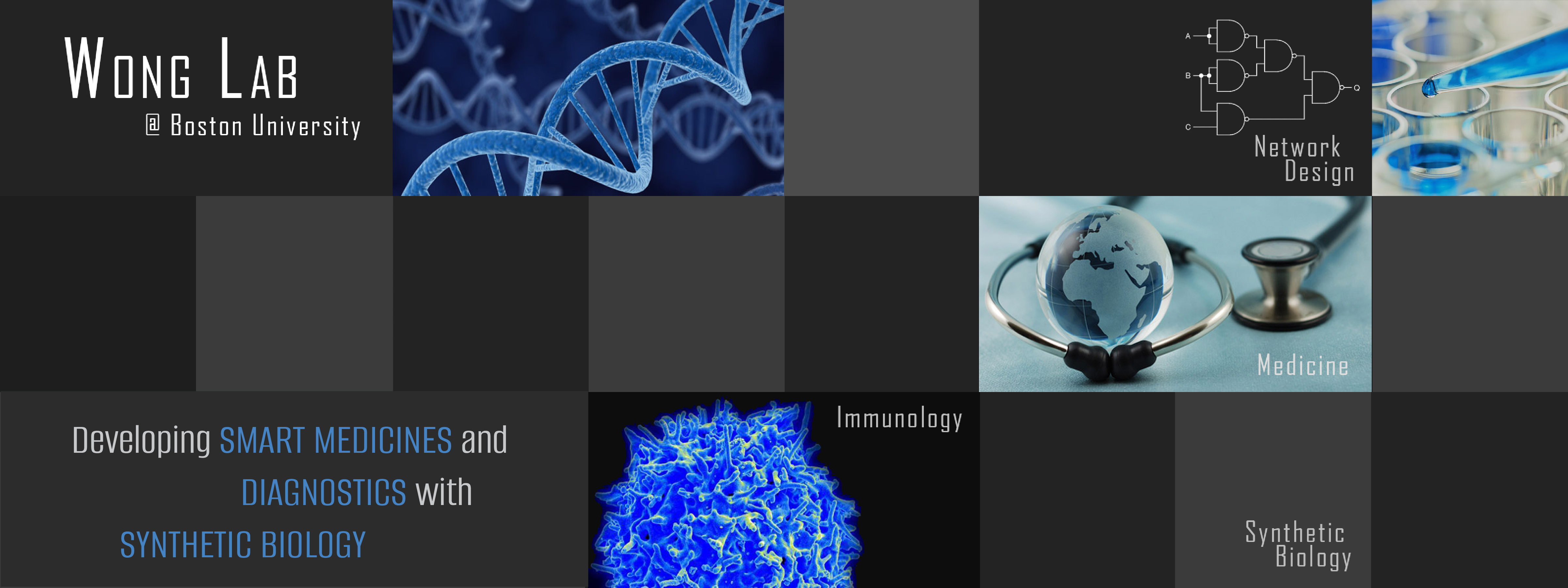Medical Applications of Synthetic Biology
Genetically engineered mammalian cells represent the next frontier in medicine. Unique to cell-based platforms is their ability to perform highly robust logical operations by sensing and responding to multiple stimuli in vivo, which can revolutionize medicine by creating advanced cell and gene therapies, tissues/organs, vaccines, and diagnostics. However, despite recent advances in genetic engineering and genome editing, the technological barrier to creating user-defined mammalian cell functions remains immense. To obtain the necessary precision required for complex spatiotemporal control of cell function, we are embarking on an ambitious, design-driven research program to develop innovative technologies for next-generation therapeutics and diagnostics, with applications in cancer, autoimmunity, vaccines, and diabetes.
New Cell Systems Paper: Cell-free recombinase-integrated Boolean output system
A huge congratulations to Jingyao on the publication of her work on engineering recombinase circuits in a cell environment in Cell Systems today!
This is an excellent work that adapts recombinase Boolean circuits in cell-free and paper-based systems.
https://www.cell.com/cell-systems/fulltext/S2405-4712(25)00228-5?_returnURL=https%3A%2F%2Flinkinghub.elsevier.com%2Fretrieve%2Fpii%2FS2405471225002285%3Fshowall%3Dtrue
New Science Advances Paper: Multiplexing light-inducible recombinases to control cell fate, Boolean logic, and cell patterning in mammalian cells
A huge congratulations to Cristina on the publication of her work on multiplex light inducible recombinase in Science Advances today!
This is an excellent work that combines optogenetics, advanced genetic circuits, and cell fate patterning.
https://www.science.org/doi/10.1126/sciadv.adt1971
New Nature Biotechnology Paper: Substitution of modified nucleotides in self-amplifying RNA (saRNA) suppresses interferon response while maintaining translation efficacy
A huge congratulations to Josh on the publication of his work on saRNA in Nature Biotech this morning!
saRNA is an exciting platform for delivering genetically-encoded therapeutics, and the discovery of replicon-compatible modified nucleotides for enhanced translation efficiency and minimal immunogenicity opens the door for it's use across a broad stretch of applications: from vaccines as demonstrated in this publication, to the immunotherapy, protein-replacement therapy, and cell therapy spaces as well.
This work has opened up an exciting new avenue for our work in the Wong Lab. Congrats again to Josh, and all the other team members from the Wong, Grinstaff and Douam labs!
https://www.nature.com/articles/s41587-024-02306-z
New Nature Communications Paper: Cas13 mediated programmable RNA regulation in mammalian cells
Congratulations to Chloe on her first author paper, and to the rest of the team including Cristina, Jaehoon and Jingyao!
Huishan and Divya’s paper on synZifTR is now published in Science.
Congratulations! Another first-author paper for Huishan this year.
Wilson’s review with Darrell Irvine, Marcela Maus, and David Mooney on the future of engineered immune cell therapies is now published in Science.
Seunghee’s review on gene circuit designs in immune cell therapies is published in Cell Systems.
Congrats!
Menna and Cristina’s review on inducible gene expression systems is now published in Current Opinion of Biotechnology.
Congrats!
VIPER CAR paper is now published in Cancer Cell
Congratulations to the team, Huishan, Nicole, Elliot, John, and Mo.
Allen Distinguished Investigators Award
We are honored that the Paul Allen Family Foundation has selected our project on lung branching morphogenesis with Dr. Chris Chen and Dr. Darrell Kotton to be the 2022 Allen Distinguished Investigators Award.
